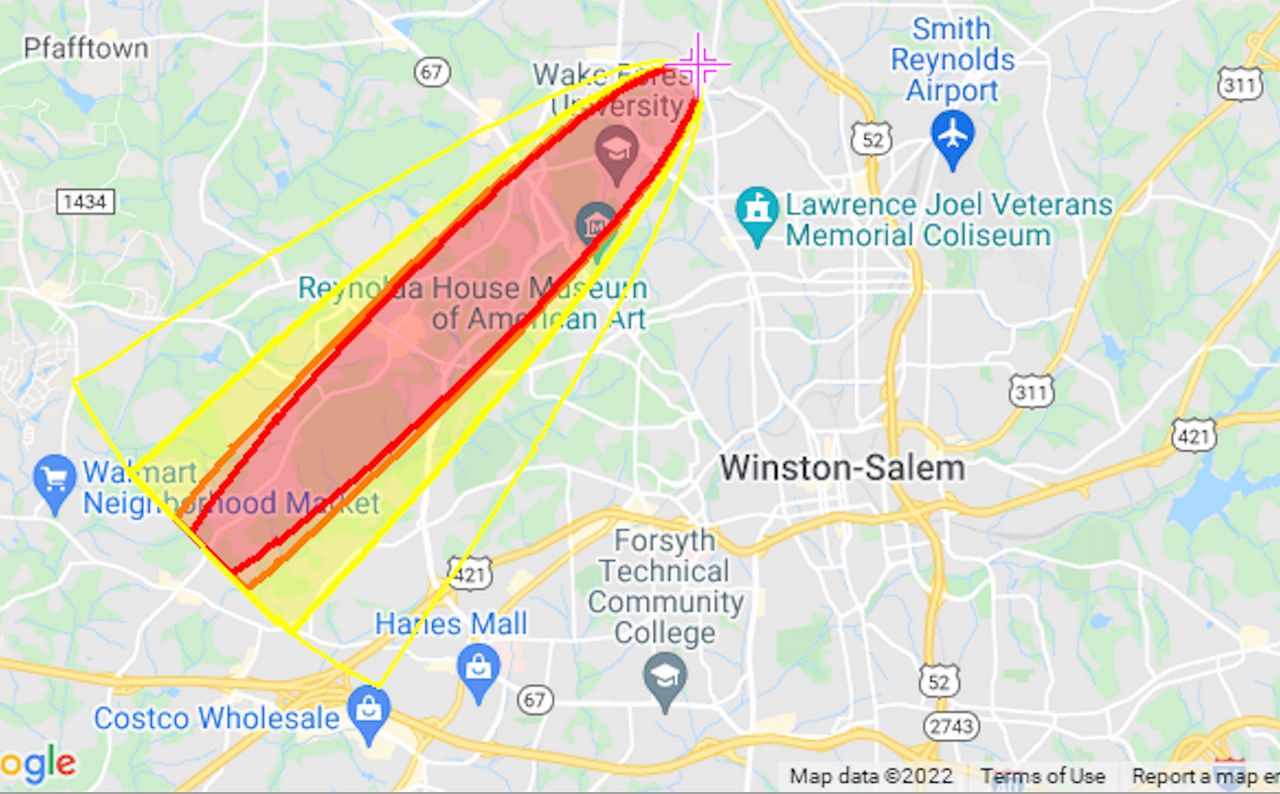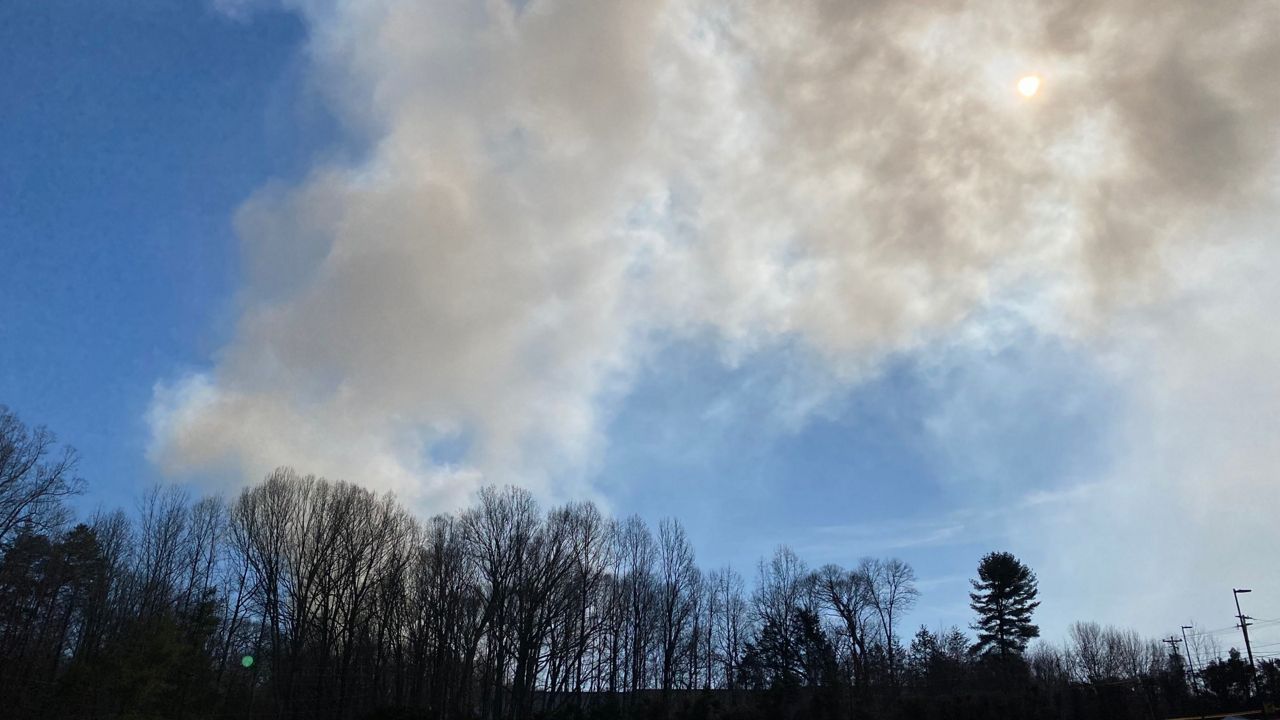WINSTON-SALEM, N.C. — As the massive fertilizer plant fire continues to burn in Winston-Salem, first responders and doctors say the air quality in the area could be dangerous for children and for adults with lung conditions like asthma.
What You Need to Know
A large fire tore through Weaver Fertilizer Industrial Plant in Winston-Salem
The smoke from the massive blaze is moving in areas northwest of downtown Winston-Salem
A pulmonologist says people with compromised lungs in the vicinity of the smoke should shield themselves
The smoke is drifting to the southwest of the Weaver Fertilizer Industrial Plant on the 4400 of Cherry Street, making it hard for some to breath in areas northwest of downtown Winston-Salem around Wake Forest University.
The city has asked more than 6,500 people who live within a mile of the plant to evacuate. There are hundreds of tons of ammonium nitrate at the facility that could explode in the blaze.
“If you haven’t evacuated and you live there, it would probably be wise to leave,” said Dr. Jill Ohar, a pulmonologist at the Wake Forest School of Medicine.
Those most at risk are people who have conditions like COPD or asthma, babies and older people in the area. There are two big issues with this fire, she said. The first is the risk of explosion. The second is the air pollution in the smoke billowing from the fire.
The fire started at about 7 p.m. Monday. Firefighters pulled back from the fire Monday night because there’s an estimated 600 tons of ammonium nitrate at the site, said Winston-Salem Fire Chief Trey Mayo.

At a similar fertilizer plant fire in west Texas almost a decade ago, 150 tons of ammonium nitrate exploded, killing 15 firefighters and flattening 150 buildings in the area, he said.
Trey said the fire department is currently monitoring the blaze, but they are not actively fighting the fire. It could take 36 hours for the fire to burn itself out completely, which means it could be until Wednesday morning before the air quality starts to improve.
Ohar said people should stay inside Tuesday and avoid breathing in the smoke.
“Don’t walk your baby, don’t go out as an old person for your usual one mile walk. Skip it today and let the air clear,” she said. If you have to go out, she said people should wear a mask to protect against inhaling the smoke.
“I would recommend wearing a mask, I would recommend wearing the highest quality mask you can get, Ohar said. The highest quality masks are N95 or KN95, followed by surgical masks, she said. Cloth masks give the least protection.
“What's so important for you to go out and put yourself at risk?" Ohar said.



